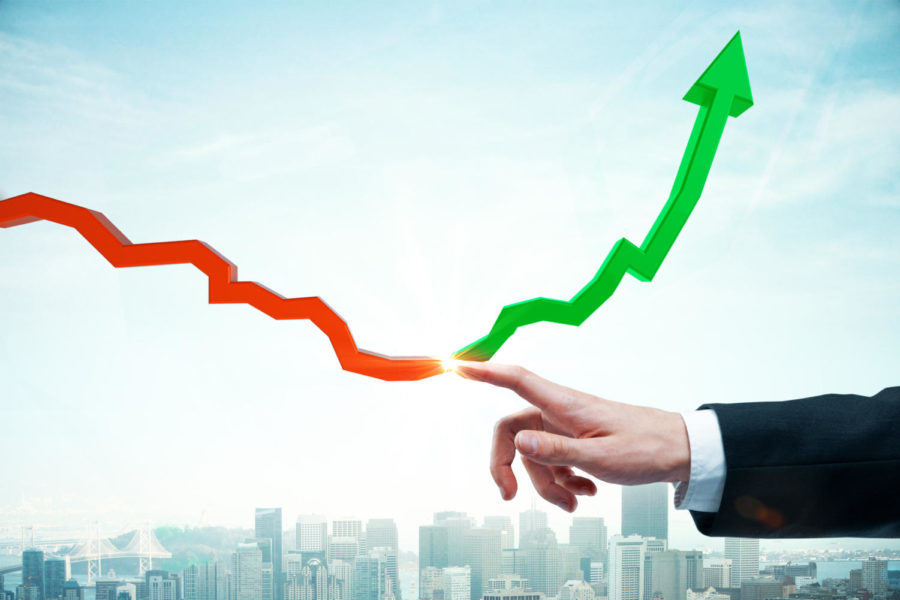Oztok: Why you should be more skeptical about good economic news
August 11, 2022
Iowa Secretary of State Paul Pate recently announced that Iowans registered the highest number of new business entities during the 2022 fiscal year in state history.
According to the report, 33,331 new businesses registered with the secretary’s office between July 1, 2021 and June 30.
“Despite rising inflation and supply chain disruptions, this data shows Iowa entrepreneurs are investing in businesses in our state,” Pate stated. “I’m very proud of the work we’ve done to make it faster and easier than ever to launch a new business in Iowa.”
The media release highlighted the importance of newly implemented reduced filing fees and Fast Track Filing system as a reason for the record increase in business filings.
Although this seems hopeful and carries out a positive message, it produced the opposite reaction when I read it for the first time. Let me explain why.
A vast amount of data and research papers in the field of economics show the relationship between government regulation and business activity. I support the idea of expediting the business formation process because, in general, removing extra barriers caused by government bureaucracy will lead to greater incentives for entrepreneurs to start a new business, thus causing more businesses in the long run. I must give some credit to the secretary, but I cannot go without saying that the reason we saw such a big increase was not caused by this process adjustments alone. In fact, it probably did very little for the overall spike. But if it’s not the new implementations that caused this boom, then what is it?
To get a short answer, we must look at Pate’s statement again from a different perspective. He said, “despite rising inflation,” but to correctly assess the situation, we must replace the first part of the sentence with “because of rising inflation.
In my previous article, I talked a bit about inflation. In summary, you will get price increases if you have too much money chasing too few goods. Before I further explain my reasoning, let’s check the overall U.S. data to see if the upward trend has been only predominant in the state of Iowa.
As you can see from the chart, the increased business applications is a trend we observe all around the country. You can check the business formation statistics report if you want more information.
You might think, “If we get more business creation and a boost in the entrepreneurial spirit, then this inflation thing cannot be as bad as people say, right?” unfortunately, it is not that straightforward. So, what is the relationship between rising inflation and increased business activity, and why am I skeptical about the “good news?”
The Federal Reserve, the central bank of the US, lowers interest rates to stimulate economic growth. After COVID-19, the central bank set rates to an effective lower bound of 0 to 0.25 percent, which is historically very low. They did that because they predicted that COVID-19’s effects and lockdowns would weigh on economic growth and pose risks to the job market, so they wanted to encourage more borrowing and spending.
The point I want to stress is that these actions are not market phenomena. What I mean by that is that if market signals do not originate from the law of supply and demand and free transactions between businesses and individuals but rather from a central planning authority, then market price signals will be distorted.
When market signals are distorted, in this case, the Fed keeping the rates artificially low, then many business and investment opportunities will look more profitable than they actually are. The failure of investors to accurately predict either the pattern of consumer demand in the future or the eventual availability of more effective means of meeting consumer demand leads to malinvestment. Malinvestment is always the outcome of people’s incapacity to accurately predict future conditions. But these mistakes are typically made worse by the deceptive effects of hidden inflation.
For historical comparison, the Fed during the late 1920s artificially kept interest rates low, causing a boom — notably in the stock market. In the era known as “The Roaring 20s”, people saw stock prices rise by 50 percent in 1928 and 27 percent in the first ten months of 1929. The Fed tried to cool off what it observed as an overheated stock market by tightening credit which ended the economic boom and caused the Great Depression.
Ludwig von Mises, whom I would argue to be the greatest economist and political scientist of the twentieth century, brought a whole new perspective of understanding of money, inflation, and recessions and provided arguments against mainstream economic thought. In his book “Human Action” he wrote, “The popularity of inflation and credit expansion, the ultimate source of the repeated attempts to render people prosperous by credit expansion, and thus the cause of the cyclical fluctuations of business, manifests itself clearly in the customary terminology. The boom is called good business, prosperity, and upswing. Its unavoidable aftermath, the readjustment of conditions to the real data of the market, is called crisis, slump, bad business and depression. People rebel against the insight that the disturbing element is to be seen in the malinvestment and the overconsumption of the boom period and that such an artificially induced boom is doomed. They are looking for the philosophers’ stone to make it last.”
This is why I worry about the out-of-the-ordinary positive economic news. We live in strange times and should probably ask ourselves often if we interpret data from an unbiased and objective perspective.
I want to end this piece by sharing Nobel Laureate Milton Friedman’s quote about inflation.
“Inflation is just like alcoholism, in both cases when you start drinking or when you start printing too much money, the good effects come first, the bad effects only come later.”

















